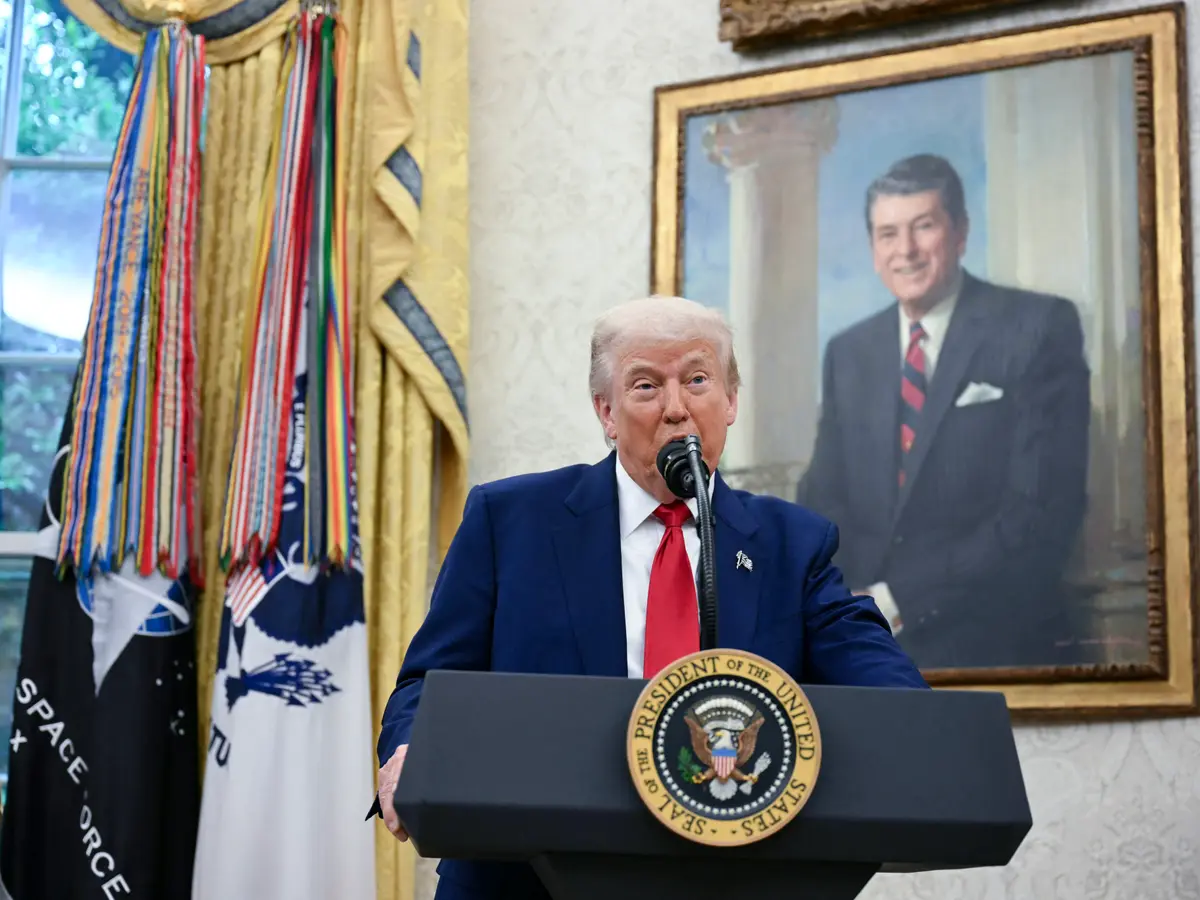With less than two weeks to go before a critical deadline, US President Donald Trump has significantly raised the stakes in ongoing trade negotiations with the European Union (EU), demanding a minimum 15 per cent to 20 per cent tariff on all EU imports. The escalation threatens to derail months of discussions and raises the prospect of a full-blown transatlantic trade conflict. According to a Financial Times report, Trump’s new demands aim to test the EU’s resolve after weeks of negotiations over a framework agreement that would have maintained a 10 per cent baseline tariff on most goods.
The US president has also rejected the EU’s latest offer to reduce car tariffs, signalling he is prepared to keep duties on the sector at 25 per cent or potentially impose a blanket 30 per cent tariff on all EU imports by August 1.
European Trade Commissioner Maroš Šefčovič gave a grim assessment of the latest talks in Washington, telling EU ambassadors that the US was not budging. One American official told the Financial Times that the administration is now considering a reciprocal tariff rate above 10 per cent even if an agreement is reached.
The EU, already hit with sectoral tariffs of 50 per cent on steel and aluminium, finds itself in a difficult position. While the bloc has indicated it would retaliate against unilateral US action, internal divisions have complicated its ability to respond with a unified strategy. A senior EU diplomat acknowledged the growing risk of retaliation but warned that Brussels may be forced to accept higher baseline tariffs to avoid a trade war.
“The mood has clearly changed,” said a second EU diplomat. “We are not going to settle at 15 per cent.” German Chancellor Friedrich Merz also expressed frustration, noting that Washington is sceptical of proposals to treat sectors like automotive trade separately. “Whether we can still create sectoral rules… is an open question,” Merz said.
Markets react
Financial markets reacted nervously to the news. The S&P 500 fell 0.2 per cent, while the Dow Jones Industrial Average dropped more than 250 points during the session. While Trump’s earlier tariff hikes have sparked global volatility, US stocks have largely rebounded, and customs revenue surged by nearly $50 billion in Q2. Still, economists warn that escalating tariffs could fuel inflation and dampen global growth.
